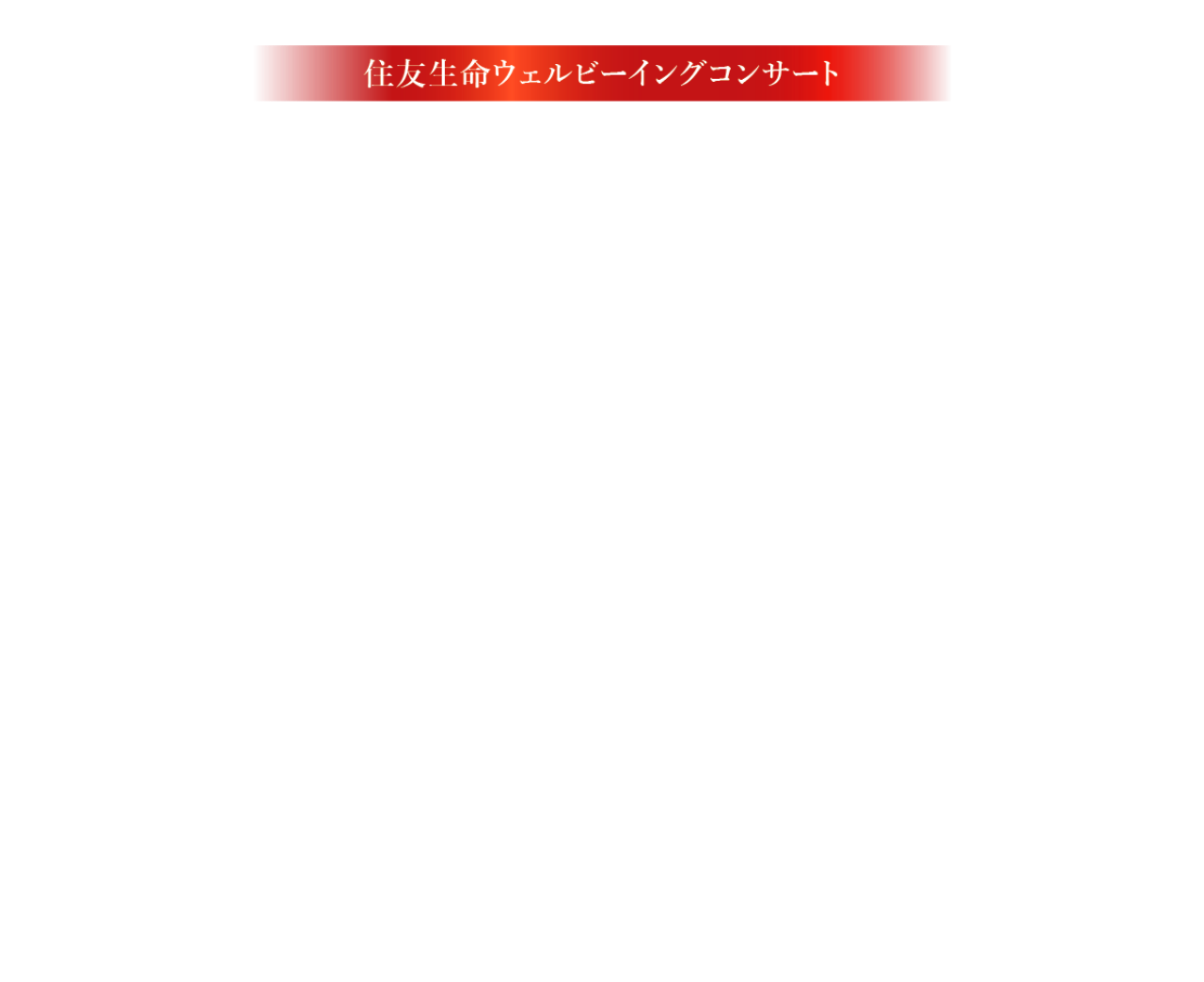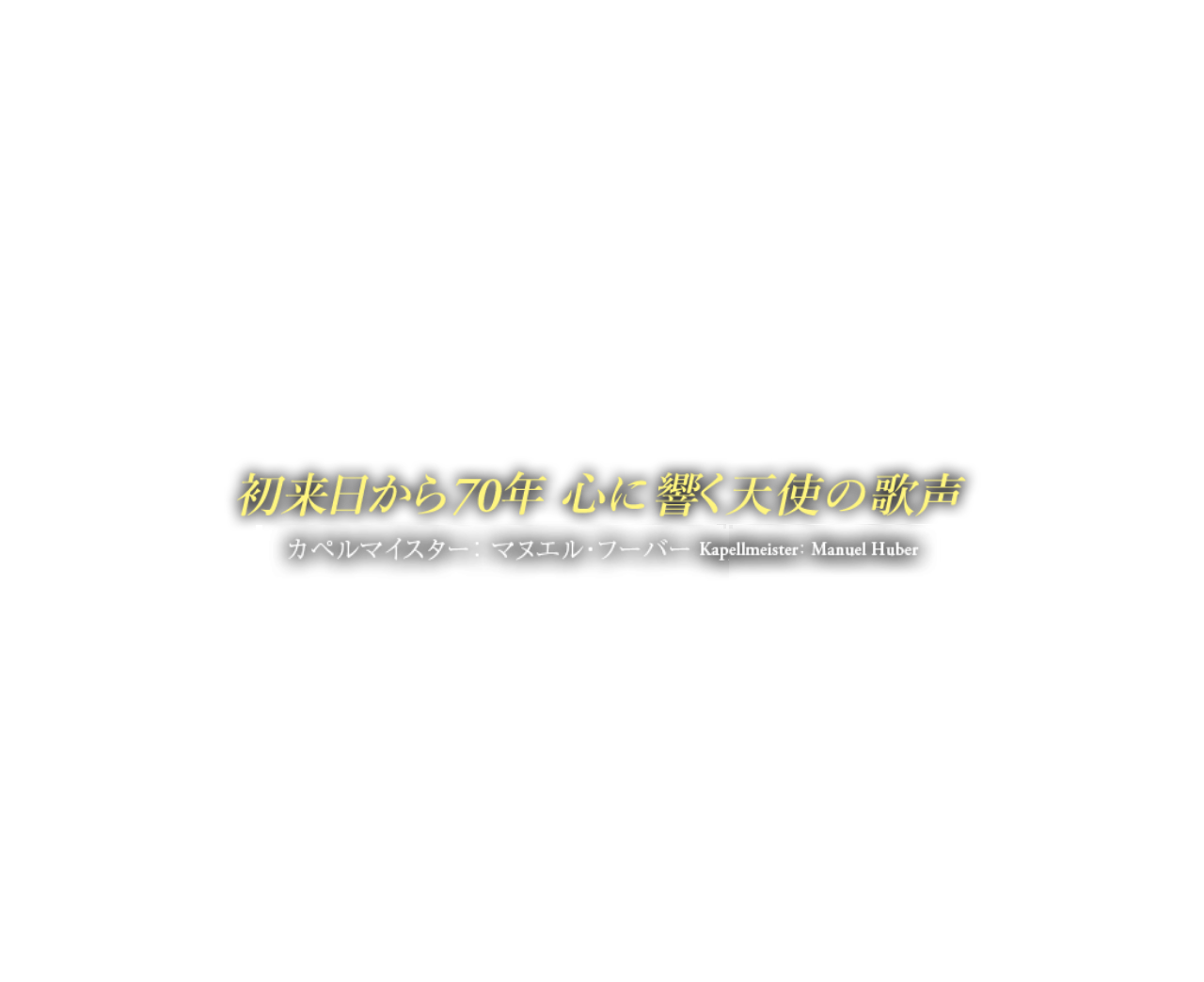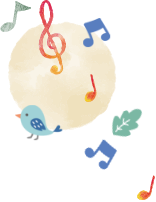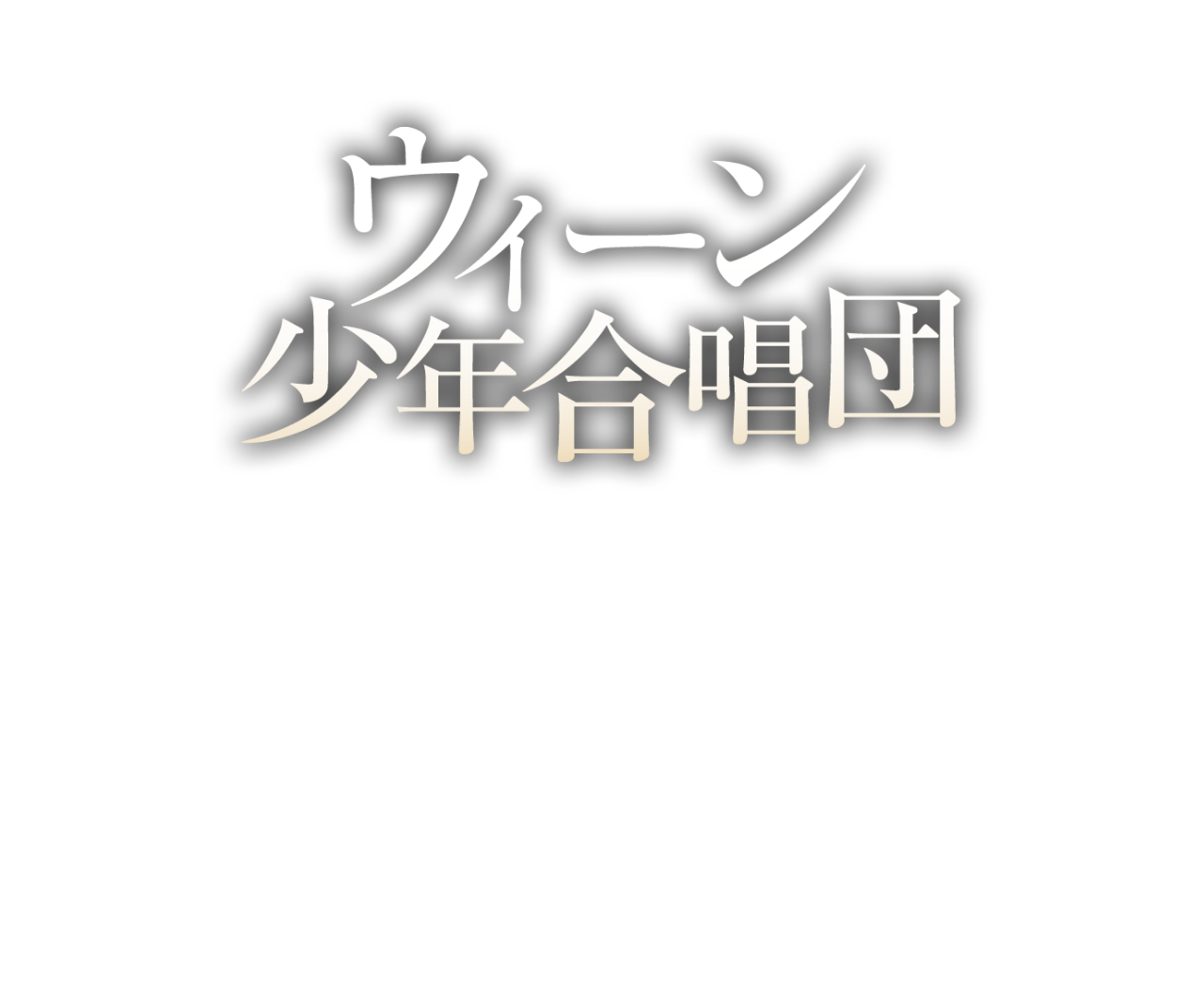




2025 - 70th anniversary
from First Japan Tour
Known as “the voices of angels,” the Vienna Boys Choir is beloved by audiences the world over.
With a history going back more than 525 years, it is the world’s most famous boys’ choir, and has even been included on UNESCO’s Intangible Cultural Heritage list for its history of tradition and excellence.
In 2025, the choir celebrates an important milestone—the 70th anniversary of its first visit to Japan.
In 2025, the Mozart Choir (Mozartchor) will be coming to Japan and delighting audiences throughout the country with its angelic voices!
70th anniversary of the first visit to Japan
It was in 1955 that the Vienna Boys Choir came to Japan for the first time.
At that time, it’s said, the choir traveled three days by ship to reach Japan from Austria.
The year 2025 will be the 70th anniversary of that first visit.
Over a 70-year period, this special choir has been captivating audiences here for three generations, while at the same time strengthening its ties with Japan.
200th anniversary of the birth of Strauss, “The Waltz King”
The year 2025 will also mark the 200th anniversary of the birth of Johann Strauss II, an essential composer in the Vienna Boys Choir’s repertoire.
Austria’s representative composer, Strauss left many Viennese waltzes for posterity, including two of the choir’s signature songs, “The Blue Danube” and “Radetzky March.”
Strauss is inseparable from the history of the Vienna Boys Choir, and on this tour the choir will be performing numerous works by the great composer in a program titled “Strauss For Ever!”
Program A - “Mother Earth”
In Program A, titled “Mother Earth,” the choir will perform numerous songs in praise of the earth’s creatures and songs expressing the enduring wish for a bright future.
Program B - “Strauss For Ever!”
Program B is a special program for the 200th anniversary of the birth of Johann Strauss II, a composer very important to the choir. Focusing on works by or related to Strauss, including both highly popular songs and “hidden gems,” the program will be presented in celebration of this anniversary year.
Both Program A and Program B will include popular songs in the Vienna Boys Choir’s repertoire such as “The Blue Danube” (Johann Strauss II) and “Furusato” (Teiichi Okano).

